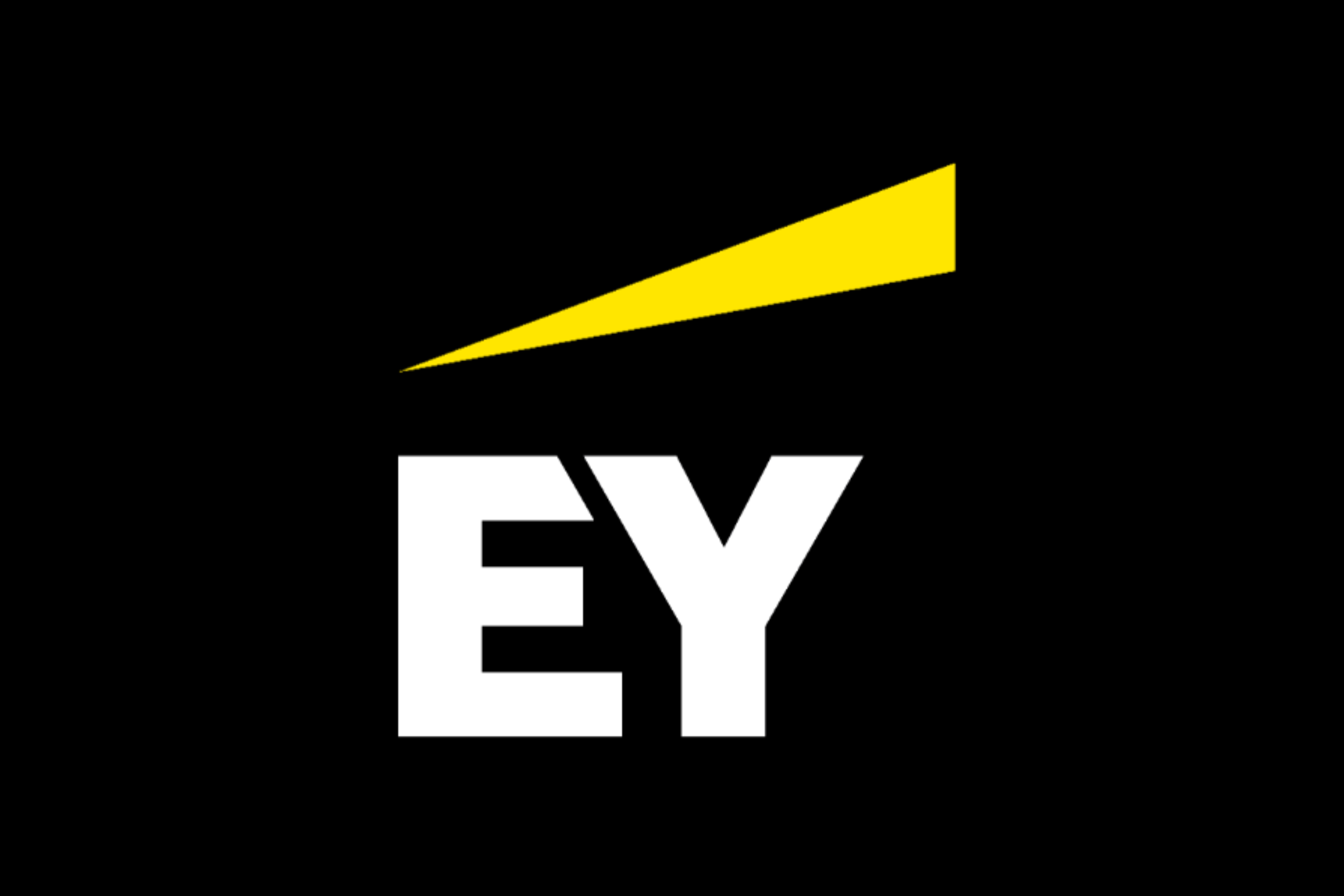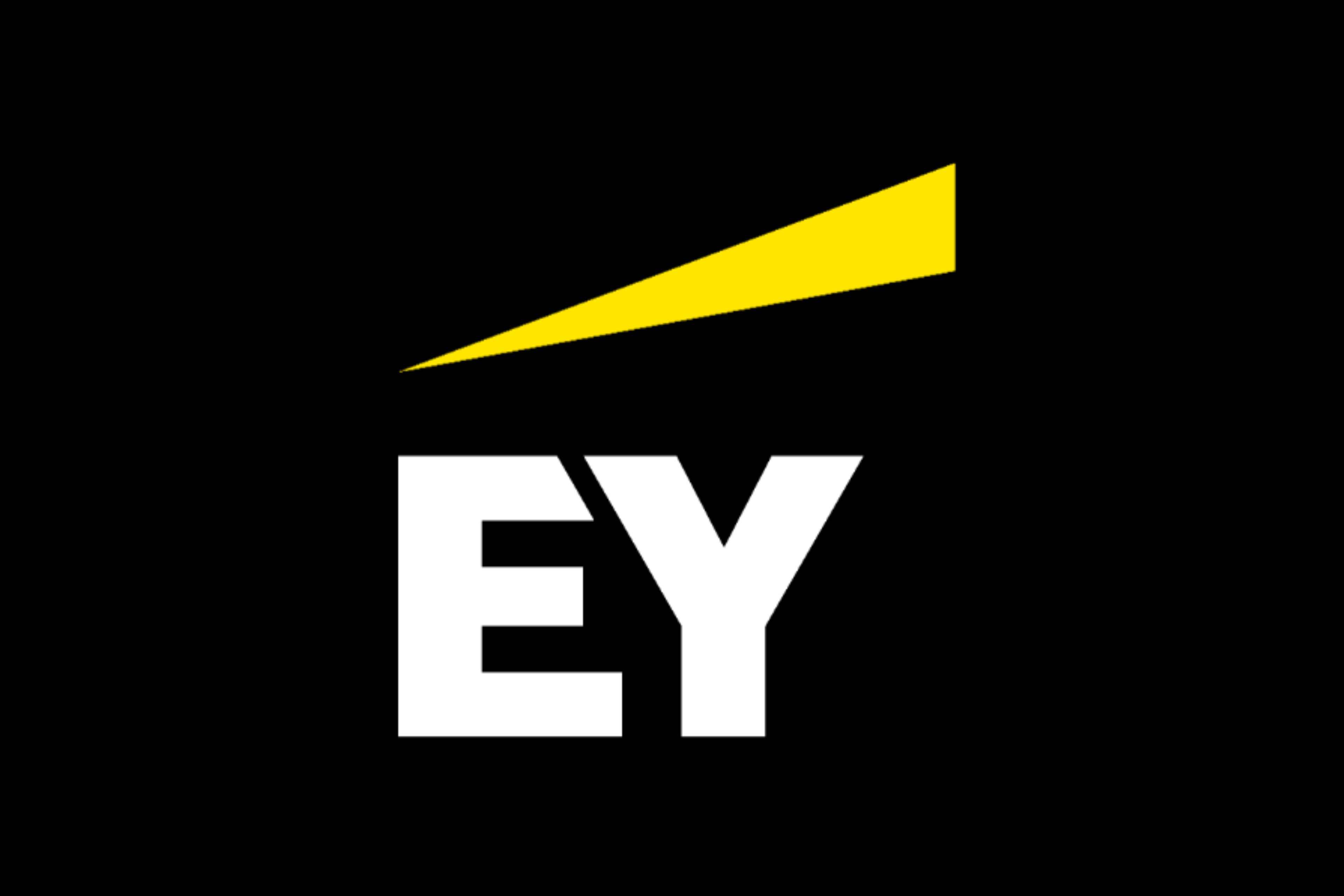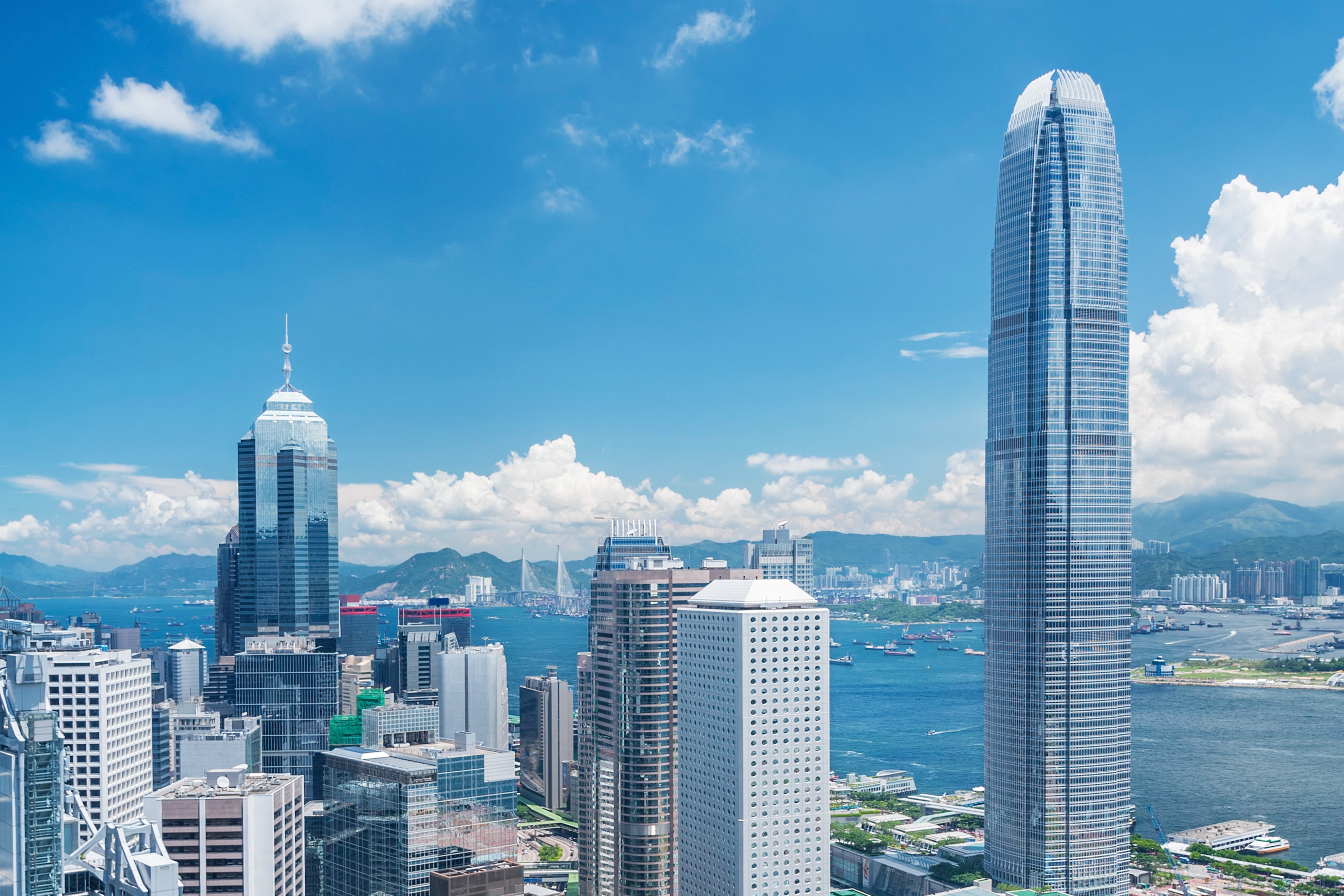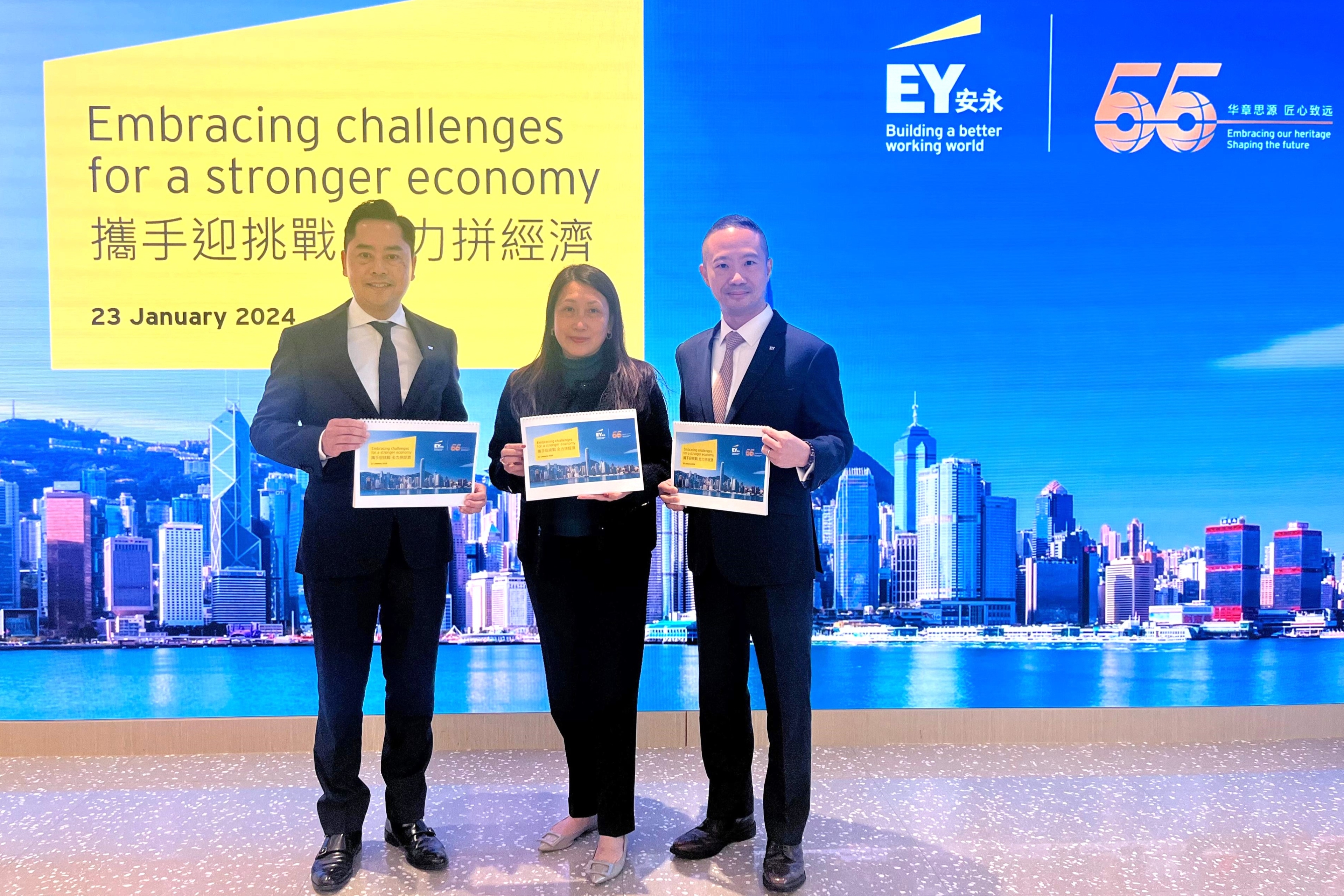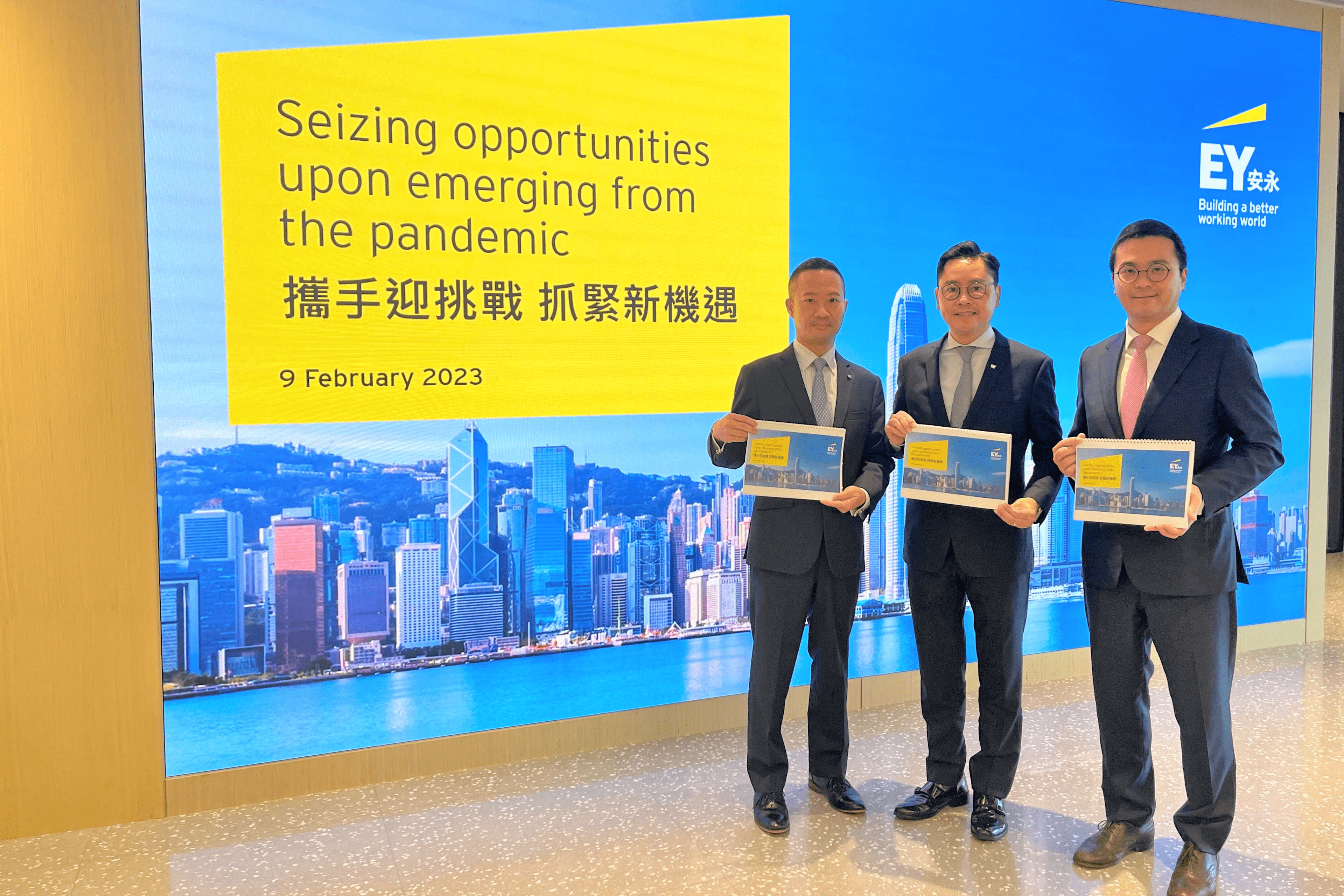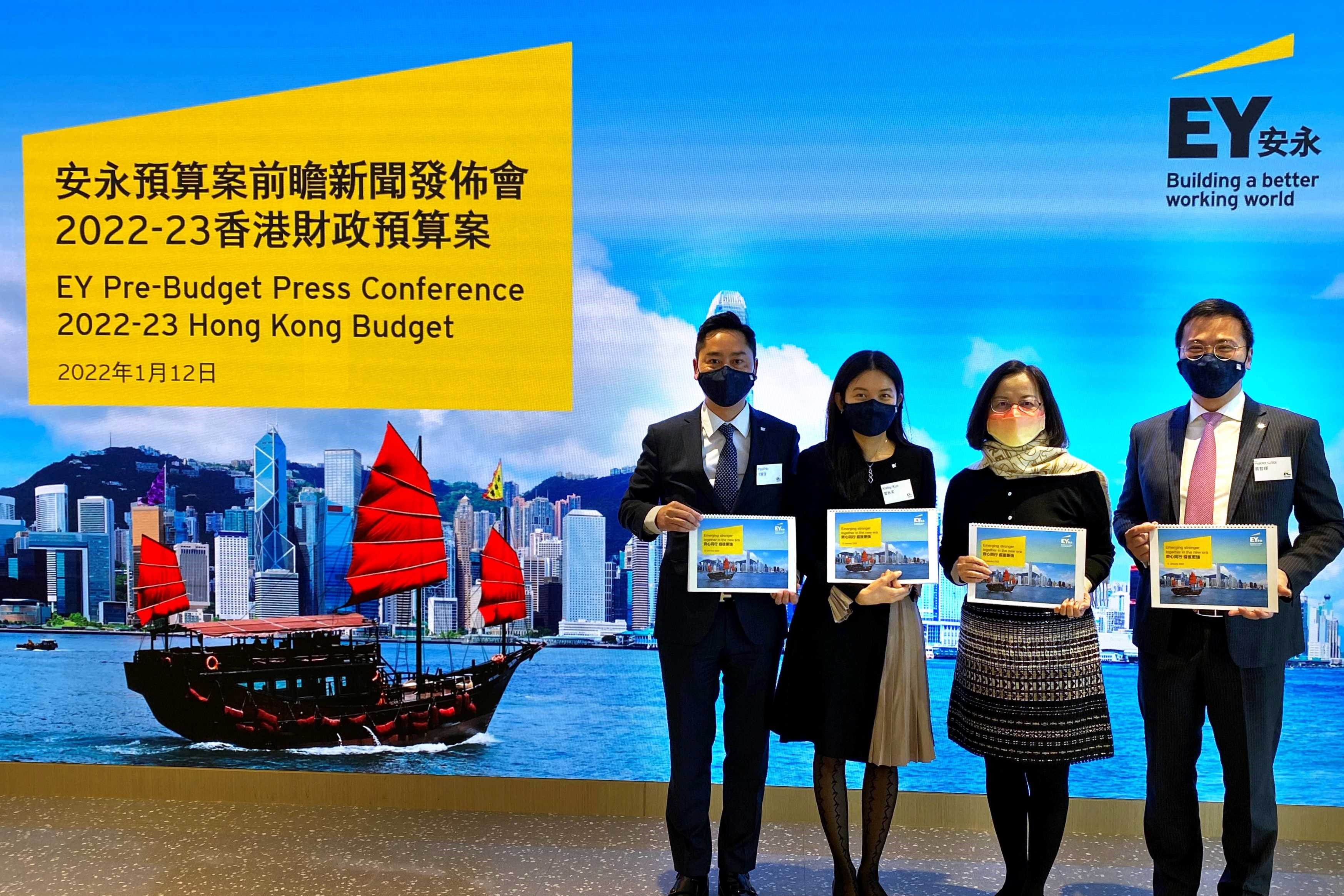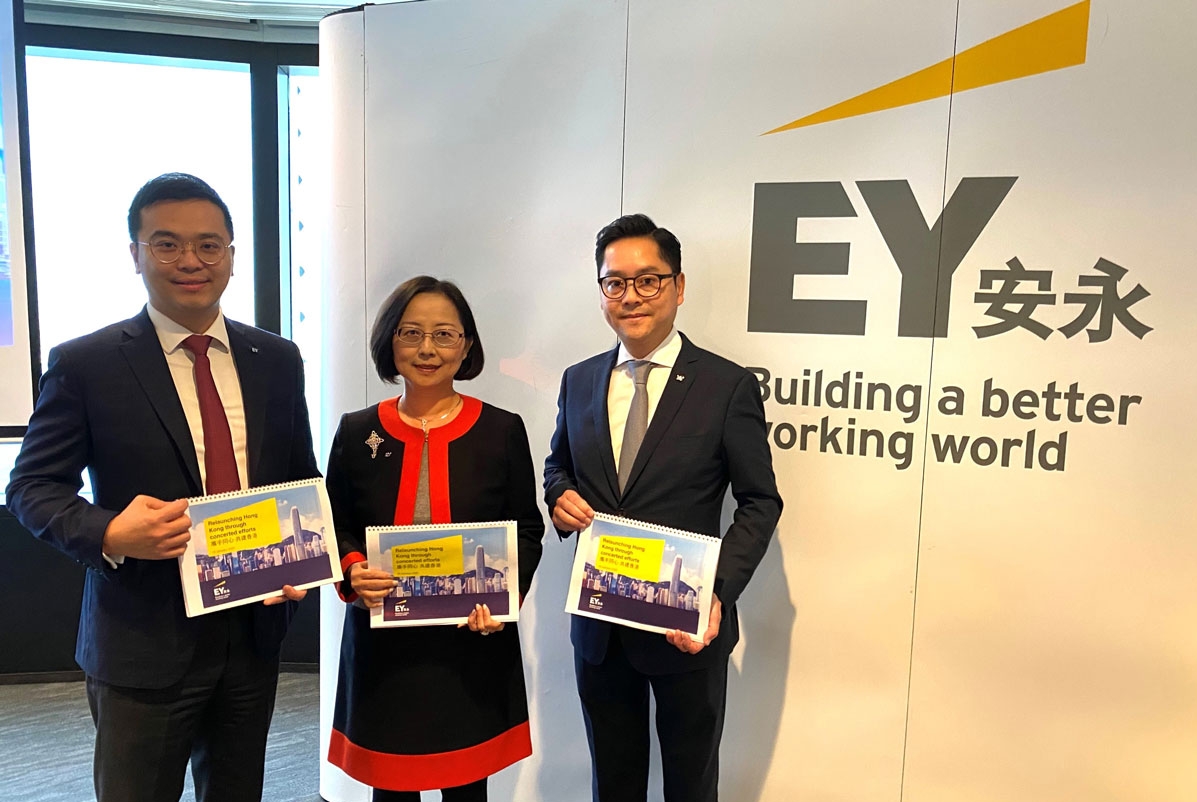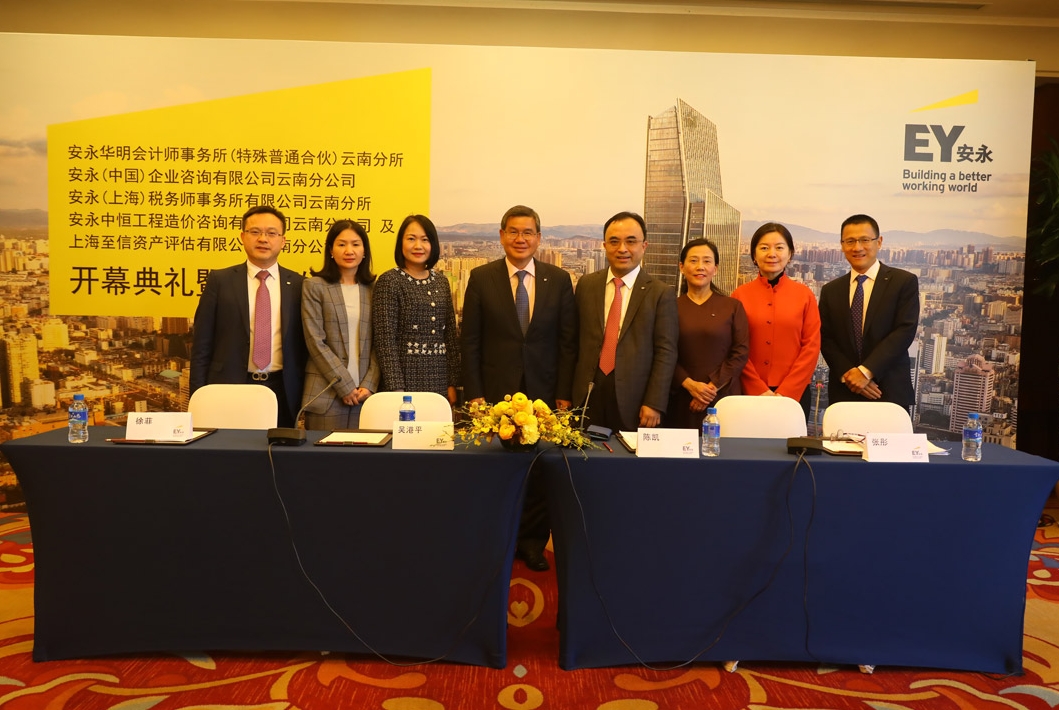EY refers to the global organization, and may refer to one or more, of the member firms of Ernst & Young Global Limited, each of which is a separate legal entity. Ernst & Young Global Limited, a UK company limited by guarantee, does not provide services to clients.
EY estimates a fiscal deficit of HK$70 billion for 2019-20
EY estimates that the HKSAR Government (the Government) will record a deficit of HK$70 billion for the financial year 2019-20, the first budget deficit in 15 years. Based on the EY figures, the estimated deficit would reduce Hong Kong’s fiscal reserves to HK$1,101 billion by 31 March 2020.
Agnes Chan, Managing Partner, Hong Kong and Macau at EY, says, “We estimate that the originally anticipated surplus will become a deficit because of the adverse economic environment. The US-China trade tensions and ongoing social incidents placed enormous strain on Hong Kong last year, both economically and socially.”
Chan adds, “The slowdown in land sales will cause land premiums to fall short of the original estimates by HK$18 billion. Noting that most trade sectors have been adversely affected to varying degrees by the current economic environment with certain sectors being hit particularly hard while jobs and employment income being consequentially affected, we estimate that profits tax and salaries tax receipts will be lower than the original budget by HK$28 billion and HK$7.6 billion respectively. Furthermore, receipts from stamp duties will fall short of the original estimates by HK$8 billion owing to the less active stock and property markets. Coupled with the rounds of one-off relief measures unveiled since August 2019 of more than HK$25 billion in total, we estimate that the Government will record a deficit of HK$70 billion in the financial year 2019-20, equivalent to 2.5% of Hong Kong’s estimated gross domestic product (GDP) in 2019. A deficit of 2-3% of GDP is acceptable by international standard.”
Hong Kong’s fiscal reserves will stay above HK$1 trillion by 31 March 2020, amounting to 39.2% of Hong Kong’s GDP
The expected budget deficit this year would reduce Hong Kong’s fiscal reserves to HK$1,101 billion as at 31 March 2020, amounting to 39.2% of Hong Kong’s estimated GDP in 2019.
Challenges facing Hong Kong
Looking ahead, the difficult economic environment that Hong Kong is currently facing may persist in the near term. The Government has announced four rounds of one-off relief measures since August 2019 to support enterprises, safeguard jobs and seek to relieve people's financial burdens, costing over HK$25 billion in total. The EY consideration is that in the face of the current social and economic environment, the Government has to make better use of fiscal reserves. Therefore, key proposals include (i) introducing a job credit scheme; (ii) relaxing the deduction rules for qualifying R&D; (iii) fostering the development of Hong Kong as an intellectual property trading hub; (iv) offering tax incentives to qualifying green bonds; and (v) further enhancing a regional headquarters tax incentive; and (vi) enhancing the dependent parent and grandparent allowance.
Considering internal and external threats looming ahead, we are cautiously optimistic about the prospect of Hong Kong's various sectors. Derived from the EY theme in this proposal, "Relaunching Hong Kong through concerted efforts", the above-mentioned key measures seek to help Hong Kong’s economy to tide over the forthcoming economic winter.
Supporting enterprises and preserving jobs
To support enterprises and preserve jobs in Hong Kong, the EY proposal recommends the following one-off relief measures:
- Introduce a job credit scheme for 6 months (to be elaborated below)
- Reduce profits tax, salaries tax and tax under personal assessment for 2019-20 by 100%, capped at HK$30,000
- Waive rates for 2020-21, capped at HK$1,500 per quarter for one rateable property for each owner
- Provide a one-off electricity charge subsidy of HK$2,000 to each residential electricity account
- Provide an extra month of various social security payments
- Waive business registration fees for 2020-21
- Waive the licence fees and charges for travel agents, hotels and restaurants for another 12 months
- Provide 50% rent concessions on tenancies managed by the Government for another six months
Job credit scheme
According to the Government’s latest statistics, there were about 340,000 small and medium enterprises (SMEs) in Hong Kong as of September 2019. They accounted for over 98% of the total business units and provided job opportunities to about 1.3 million people, about 45% of total employment (excluding civil service)1.
To sustain jobs for the workforce in Hong Kong, the EY proposal recommends providing job credits to qualifying SME employers2 for six months. Under our proposal, the Government will make 5% of the mandatory contributions to the mandatory contribution fund scheme (capped at HK$1,500 for each employee) for each qualifying SME employer for six months. We believe that the proposed measure will encourage SMEs to preserve jobs amid Hong Kong’s current economic situation. It is estimated that this proposed measure will cost the Government HK$11.8 billion.
It is estimated that all the above one-off relief measures (including the proposed Job credit scheme) will cost HK$67 billion.
Fostering an innovative economy
1. Enhancing the current Research & Development (R&D) enhanced deduction regime
1.1 Relaxing the deduction rules for qualifying R&D expenditures
EY welcomes the enactment of the new law3 that grants enhanced tax deductions for qualifying R&D expenditures, which is aimed at encouraging the private sector to increase its investment in R&D.
Based on the current strict interpretation of the new law by the Hong Kong Inland Revenue Department (IRD), where R&D activities are sub-contracted out to be performed by a service provider inside or outside Hong Kong, and the service provider is not an R&D institution as defined, the relevant R&D expenditures will not be tax deductible. However, sub-contracting out R&D activities under cost-sharing arrangements (CSAs) are quite common in a corporate group context. In addition, sub-contracting out to independent service providers outside Hong Kong may also be necessary, given that Hong Kong may currently lack sufficient talent with the skills and expertise to conduct certain types of R&D activities.
In this regard, we note that the corresponding regimes of mainland China, Singapore and the UK all appear to some extent to allow expenditures incurred on sub-contracted out R&D activities or CSAs to qualify for super tax deduction.
As such, we urge the IRD to relax the aforesaid interpretation such that sub-contracted out R&D expenditures will also be tax deductible, lest the attractiveness of the new law would be undermined.
1.2 Providing an option to convert super tax deduction into a non-taxable cash payout
Enhanced tax deduction is of little use to businesses that are in a tax loss position (such as businesses in the start-up phase), these businesses do not receive an immediate benefit from the regime. This is the case because the enhanced deduction will only enlarge their tax losses, which can only be carried forward to offset against future assessable profits.
As such, the EY proposal recommends introducing an additional provision to grant taxpayers an option to convert their enhanced tax deduction into a cash payout, e.g., a non-taxable cash payout equivalent to 10% of the qualifying R&D expenditure, in lieu of the enhanced tax deduction. Such option would in particular encourage enterprises currently not making profits (and for whom enhanced tax deduction would be of no current value) to continue to undertake R&D activities.
2. Fostering the development of Hong Kong as an intellectual property (IP) trading hub
The EY understanding is that the Government has adopted a multi-pronged approach to develop Hong Kong as a premier IP trading hub in Asia. However, it appears that tax measures in this regard may not be sufficient and we suggest the Government consider introducing the following tax measures:
2.1 Further expanding the list of deductible IP
Under the current tax regime of Hong Kong, fixed assets ranging from plant and machinery to building and structures are eligible for tax depreciation allowances. However, there are only eight types of IP eligible for tax deduction. Considering that the capital assets used in business today are less tangible in nature when compared to prior years, the EY consideration is that the list of deductible IP should be further expanded to include more of the common types, such as spectrum utilization fees4, indefeasible rights of use5, license rights and franchise rights. The proposed expansion will encourage businesses in Hong Kong to invest more in innovation and new technology, which will in turn, enhance Hong Kong’s competitiveness in high value-added industries.
2.2 Allowing unilateral tax credits for overseas withholding tax incurred on royalty fee income
Hong Kong taxpayers who grant the use of IP to people outside Hong Kong will normally pay overseas withholding taxes (WHT) in the foreign jurisdiction concerned in respect of the royalty income.
Where the royalty income earned by the taxpayers is subject to tax in Hong Kong, the taxpayers will have to pay double taxation both in Hong Kong and overseas.
Where the WHT is incurred in a jurisdiction that does not have a comprehensive avoidance of double taxation arrangement (CDTA) with Hong Kong, taxpayers would not be able to obtain any tax relief in Hong Kong in respect of the WHT incurred.
The lack of any tax relief for WHT incurred in non-CDTA jurisdictions (which currently including some of Hong Kong’s major trading partners e.g., Australia, Germany, Singapore and the US) on royalty may make Hong Kong less attractive as a hub for international licensing activities. As such, the EY proposal is that the Government allow unilateral tax credits for overseas withholding tax incurred on royalty income derived from jurisdictions which have not concluded CDTAs with Hong Kong. We believe that this proposal will give Hong Kong taxpayers a greater incentive to fully explore overseas markets.
2.3 Introducing a patent box regime
Under our proposed regime, if an IP is created or developed by a taxpayer carrying out a business in Hong Kong, income derived from (i) the sale of products containing the IP; and (ii) the licensing of the IP would be eligible for concessionary tax rate of 8.25%. In this regard, half of the top 10 jurisdictions identified in the Global Competitiveness Report 20196 are providing relief for corporate tax on income generated from certain types of IP, particularly patents.
3. Designating Hong Kong/Shenzhen Innovation and Technology Park as a preferential tax zone
Paul Ho, Financial Services Tax and Business Advisory Services Partner at Ernst & Young Tax Services Limited, says, “To attract top-notch high-new technology or creative enterprises, as well as professionals to establish and work in the Hong Kong/Shenzhen Innovation and Technology Park, Hong Kong may need to introduce new tax incentives. In addition to granting rent concessions, we propose the following preferential tax treatments: (i) a concessionary profits tax rate of 8.25% (i.e., half of the normal rate of 16.5%) for qualifying enterprises; (ii) only 50% of the assessable income of individuals employed as high-new technology or creative professionals by enterprises in the Park to be subject to salaries tax; and (iii) preferential salaries tax treatment for stock rewards and stock option gains awarded to such individuals.”
4. Nurturing high-new technology and creative start-ups by offering profits tax concession and attracting angel investors by providing tax relief
Investee companies
Ho explains, “In terms of nurturing high-new technology and creative start-ups, we propose the introduction of a profits tax concession for qualifying high-new technology and creative start-ups and a tax relief for angel investors. Under the proposed profits tax concession, a newly established company that meets the qualifying conditions would enjoy a concessionary tax rate of 8.25% for the first three consecutive years after the company has commenced to derive assessable profits.”
Angel investors
Ho further elaborates, “Under our proposal, corporate and individual taxpayers who can commit a minimum of HK$500,000 in a qualifying start-up would enjoy a tax deduction of 50% of the amount of the investment in the year they made the investment, subject to a cap of HK$1 million for each year of assessment. However, if the holding period is less than three years, any deduction previously allowed will be assessed to tax in the year the investment is sold. We believe that the proposed measures can encourage more private investors, especially business veterans, to invest in start-ups that have high growth potential, and help start-ups overcome difficulties in accessing capital. Furthermore, the start-up companies may benefit from the guidance and mentorship provided by the angel investors.”
5. Providing tax incentives to improve employee development
The EY proposal further recommends a super tax deduction of 200% for employee training costs paid to accredited providers of training services to encourage employers to groom future talent.
Fostering a vibrant economy
Ho adds, “With the challenges of rising unilateralism and protectionism, it is imperative for Hong Kong to have a vibrant and diversified economy. We suggest that the Government should not only introduce new tax incentives to further strengthen Hong Kong as an international financial center, but also consider tax measures to assist taxpayers to capture opportunities under the Belt & Road (B&R) and Greater Bay Area (GBA) initiatives. In view that major contributors to shipowning and shipbuilding activities are located in Asia, we agree with the Government that Hong Kong should introduce tax measures to enhance the development of high value-added maritime services.”
1. Further strengthening Hong Kong as an international financial center
- Offering tax incentives to qualifying green bonds (QGBs) through a two-pronged approach. From the perspective of issuers, issuing green bonds comes with extra costs, such as costs incurred to obtain third party verification and compliance with regular reporting requirements after issuance. In regard to financial incentives for corporations to issue green bonds in Hong Kong, the EY proposal is to allow a super tax deduction of 200% for qualifying expenditure with respect to the issuance and compliance costs regarding the issuance of QGBs. In addition, we propose to enhance the existing Qualifying Debt Instrument (QDI) scheme by extending the scope of tax exemption to include all QGBs which will attract more investors to invest in QGBs traded in Hong Kong.
- Enhancing tax incentives for funds by amending the definition of “specified transactions” such that bond funds whose principal income is interest would also be tax exempt.
- To complement the existing profits tax exemption regime for investment funds in Hong Kong, the EY proposal is that fund managers meeting certain criteria such as incurring certain levels of operating expenditure and employing certain number of fund management or investment advisory professionals, would be taxed at a concessionary tax rate of 8.25% in respect of their fee income derived from fund management or advisory activities. We believe that such measure would further consolidate the position of Hong Kong as an asset management center in Asia.
2. Capturing opportunities under the B&R and GBA initiatives
- Introducing a regional headquarters (RHQ) tax incentive to enhance the attractiveness of Hong Kong to multinational corporations (MNCs) accessing the mainland China market and Mainland companies seeking to “go global”. Under the proposed tax incentive, profits derived by a qualifying RHQ from qualifying activities would be taxed at a concessionary tax rate of 8.25%. EY believes that introducing an RHQ incentive to cover regional management and coordination activities would complement the corporate treasury centre tax regime introduced in 2016 that covers group financing activities. This is because MNCs typically situate their regional financing and management hubs in the same location to enable group resources to be more effectively managed on a regional basis.
- Directing more resources toward the negotiation of comprehensive avoidance of double taxation arrangements (CDTAs) with other jurisdictions, especially jurisdictions along the B&R.
- Relaxing section 39E of the Inland Revenue Ordinance to grant tax depreciation allowances in respect of plant and machinery used overseas to facilitate offshore equipment leasing and infrastructure projects along the B&R.
3. Enhancing the development of high value-added maritime services
- The EY understanding is that the Government will introduce a new dedicated tax regime to promote the development of ship leasing business in Hong Kong. Under the proposed regime, the tax rate on the qualifying profits of qualifying ship leasing managers will be reduced by half to 8.25%. We propose to further expand the scope of concession to include qualifying profits derived from the provision of qualifying shipping-related support services, such as ship broking, forward freight agreement trading, ship agency and freight forward and logistics services. Promoting the growth of ancillary shipping service providers would further support the growth of the maritime cluster in Hong Kong.
Building a greener city
To facilitate the implementation of municipal solid waste charging, the Government must strengthen its support of waste reduction and recycling. In this regard, the EY proposal recommends the following tax measures: (i) providing a 200% tax deduction for the acquisition cost of plant and machinery employed in recycling businesses in the year of purchase; and (ii) offering a concessionary tax rate of 8.25% on qualifying recycling profits.
In addition, the EY proposal recommends the following green tax measures to make Hong Kong a greener city for people to live in and do business: (i) waiving the first-time registration tax on electric vehicles; and (ii) further raising the duty on motor-use leaded petrol.
Caring for our people
1. Enhancing the dependent parent and grandparent allowance
Robin Choi, People Advisory Services Partner at Ernst & Young Tax Services Limited, says, “Currently, taxpayers may claim dependent parent and grandparent allowance (DPGA) in respect of each dependent parent/grandparent maintained by them/their spouse. In general, the dependent must meet the following conditions in the relevant year of assessment: (i) ordinarily resided in Hong Kong; (ii) aged 55 or more; and (iii) maintained by the taxpayers. Taxpayers will be eligible for an additional DPGA if they resided with the dependent parent/grandparent continuously throughout that year of assessment.
We consider that the qualifying conditions for DPGA should be adjusted over time to meet new social and economic realities. Taxpayers may not be able to reside with their dependents due to small living space. On the other hand, the availability of improved health and senior care may encourage more Hong Kong elderly to relocate to mainland China when they retire, in particular to the GBA. As such, we propose removing the differentiation between basic and additional DPGA. Under our proposal, so long as a dependent is aged 55 or more, ordinarily resided in Hong Kong or the GBA, and is maintained by a taxpayer in a relevant year of assessment, the full amount of DPGA i.e., including the additional DPGA, would be granted to the taxpayer. It is estimated that this proposed measure will cost the Government HK$3.2 billion a year.”
2. Relieving the tax burden of individuals
To ease the tax burden of individuals, the EY proposal recommends the following recurring tax relief measures including: (i) introducing caregiver allowance of HK$20,000 to taxpayers, allowing them to claim in respect of one of his/her parents or parents-in-law, who is not employed and is looking after any children of the taxpayer who are not more than 12 years old; and (ii) allowing taxpayers to defer the claim for deduction of self-education expenses for up to three years from the year of assessment on which they took the relevant course. The above proposed measures will be at an estimated revenue cost of approximately HK$800 million a year.
1 www.success.tid.gov.hk/english/aboutus/sme/service_detail_6863.html
2 Manufacturing enterprises with fewer than 100 employees and non-manufacturing enterprises with fewer than 50 employees are regarded as qualifying SMEs.
3 Inland Revenue (Amendment) (No. 7) Ordinance 2018
4 Operators of mobile communications services are required to pay spectrum utilization fees to the Government for the use of administratively an assigned spectrum for a specified period.
5 Operators of telecommunication services have to purchase indefeasible rights of use of cables in order to provide external telecommunications facilities based on submarine or land cables.
6 www.weforum.org/reports/how-to-end-a-decade-of-lost-productivity-growth
-Ends-
Notes to Editors
About EY
EY is a global leader in assurance, tax, transaction and advisory services. The insights and quality services we deliver help build trust and confidence in the capital markets and in economies the world over. We develop outstanding leaders who team to deliver on our promises to all of our stakeholders. In so doing, we play a critical role in building a better working world for our people, for our clients and for our communities.
EY refers to the global organization, and may refer to one or more, of the member firms of Ernst & Young Global Limited, each of which is a separate legal entity. Ernst & Young Global Limited, a UK company limited by guarantee, does not provide services to clients. Information about how EY collects and uses personal data and a description of the rights individuals have under data protection legislation is available via ey.com/privacy. For more information about our organization, please visit ey.com.
This news release has been issued by a China member firm of Ernst & Young Global Limited.
Related news
HONG KONG, 23 APRIL 2024 — EY supports Invest Hong Kong (InvestHK), a department of the Government of the Hong Kong Special Administrative Region (“HKSAR government”) to prepare the Setting up a family office in Hong Kong guidebook (the “Guidebook”) and offers professional consulting services. This Guidebook has been curated to provide insight into the opportunities available for family offices in Hong Kong and its supportive ecosystem.
HONG KONG, 12 MARCH 2024 — Hong Kong University of Science and Technology (HKUST) Roger King Center for Asian Family Business and Family Office ("the Center") and EY Family Enterprise team (“EY”) today announced the publication of the Landscape of Family Offices in Greater China Report 2024 (the "Report"). Combining academic research and industry expertise, the report provides a comprehensive and insightful analysis of the family office landscape in Greater China. Findings in the report suggest that Chinese mainland families are the primary driving force behind the development of family offices in Hong Kong and that attracting Chinese mainland families is to be focalized.
HONG KONG, 28 FEBRUARY 2024 — The Hong Kong SAR Government (the Government) announced the Hong Kong Budget 2024-25 (the budget) today, in which a revised deficit of HK$101.6 billion will be recorded for the financial year 2023-24, which is almost double of their original forecast of HK$54.4 billion. Amid uncertainties in the global economic outlook, the Financial Secretary (FS) adopted a balanced approach in the budget to relieve people's hardship while simultaneously revitalizing the economy.
HONG KONG, 23 JANURARY 2024 — Ernst & Young Tax Services Limited (EY) estimates that the Hong Kong SAR Government (the Government) will record a fiscal deficit in the financial year 2023-24 of HK$148.0 billion, which would exceed the HK$54.4 billion originally forecasted in the Government’s Budget announced in February 2023 by almost two times.
EY comments on Hong Kong Budget 2023-24 — Hong Kong’s fiscal position and relief measures
HONG KONG, 22 FEBRUARY 2023 — EY comments on Hong Kong Budget 2023-24, covering Hong Kong’s financial positioning and relief measures.
HONG KONG, 9 FEBRUARY 2023 — Ernst & Young Tax Services Limited (EY) estimates that the HKSAR Government (the Government) will record a fiscal deficit in the financial year 2022-23 of HK$135 billion, which will be significantly higher than the amount of HK$56.3 billion originally forecasted in the Government’s budget announced in February 2022.
EY comments on Hong Kong Budget 2022-23 — Hong Kong’s financial positioning and relief measures
HONG KONG, 23 FEBRUARY 2022 — EY comments on Hong Kong Budget 2022-23, covering Hong Kong’s financial positioning and relief measures.
HONG KONG, 12 JANUARY 2022 — Ernst & Young Tax Services Limited (EY) estimates that the HKSAR Government (the Government) will record a fiscal deficit in the financial year 2021-22 of HK$18 billion, which will be considerably lower than that originally forecasted in the Government’s budget announced in February 2021.
EY comments on Hong Kong Budget 2021-22 - Hong Kong’s financial positioning and relief measures
HONG KONG, 24 FEBRUARY 2021 — Agnes Chan, EY Managing Partner, Hong Kong and Macau, says, “Based on the revised estimate announced in the Hong Kong Budget, the HKSAR Government (the Government) will record an unprecedented deficit of HK$258 billion for the financial year 2020-21, the highest deficit recorded to date.”
EY comments on Hong Kong Budget 2020-21
HONG KONG SAR, 28 FEBRUARY 2020 — Based on the revised estimate announced in today’s budget, the HKSAR Government will record the first budget deficit in 15 years, says Agnes Chan, EY Managing Partner, Hong Kong and Macau.
EY estimates a fiscal deficit of HK$70 billion for 2019-20
HONG KONG SAR, 16 JANUARY 2020 - EY estimates that the HKSAR Government (the Government) will record a deficit of HK$70 billion for the financial year 2019-20, the first budget deficit in 15 years.
EY Greater China region opens the 29th office in Kunming
KUNMING, 7 JANUARY 2020 — As the 29th office of EY Greater China region, we will provide a full range of professional services to institutions and enterprises in Yunnan, helping Yunnan to become a gateway to Southeast and South Asia.




